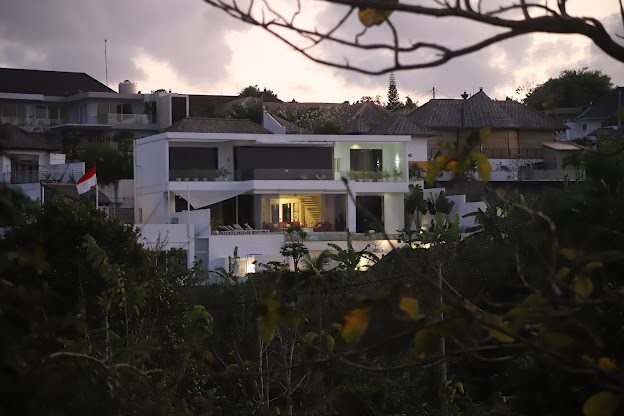Bali is a small island in Indonesia that has been completely transformed through the tourism industry. The mass tourism of this island began with wave surf tourism. And it’s a common saying that it started after the premiere of the surf movie Morning of The Earth (1972). The film contains footage from Bali as an unexploited beautiful and harmonic paradise with amazing waves. Bali has since developed into a Mecca for surf culture.
A lot of Balinese locals are currently protesting publicly against the extensive exploitation of the island. They point to the international tourism industry, the ruling economic elite and the political power of Jakarta as responsible. The problems that the locals address, among other things, are that they themselves become invisible, run over by the ruling elite, without getting their own say.
As an artist I explore colonial heritage and trends through a globalized surf culture. Is surf culture so dominant that in some cases it displaces other cultural expressions?
I recently met an established art curator (producer) from Jakarta, Indonesia. She did a presentation of her work in Stockholm, Sweden. One of her subject matters was Indonesia’s current relation to a colonial history and the colonizers.
During the presentation I wrote down notes and some questions to ask. My first question was about the protest-movement “Tolak-Reklamasi” in Bali. She didn’t really want to say or answer anything about this ongoing movement and she declared the Island to exoticized and too much of bad taste to discuss. My answer back was that the Island still exist no matter if you consider it bad taste or not.
In a critical part of a discussion that followed from this, the curator pronounces something very remarkable with stating these exact words: “There are no locals in Bali.”
I got stunned by the statement. What does she really mean? No matter how you twist and turn on this statement, it is very problematic and oppressive. Not at least when one of the main messages of the demonstrating Balinese is: “We exist!”
The Balinese is a minority (Hinduism religious minority) in Indonesia.
The segregation and gentrification in Bali are evident today.
Gentrification is a displacement process. Those who are not financially
strong enough to buy houses, pay rent or live the everyday life in an
area are getting displaced. Profits on rising square meter prices
control the development. This leads to consequences for the cultural
identity of places since the variation in residents is replaced by one
and the same class. In certain areas of Bali it means that the
tourism-industry is pushing away the locals. In general terms is
gentrification processes especially evident and strong in central
cities, but also along ocean coastal stretches.
Is it possible to
say that surf culture is part of, and accelerates, gentrification
processes? This considering how places around good surf spots are
attractive and how they are used. Those areas are nowadays, in cases
when there are no laws protecting them, getting privatized. Is access to
the great open sea and the waves a class issue in an economically
neo-liberal world?





No comments:
Post a Comment